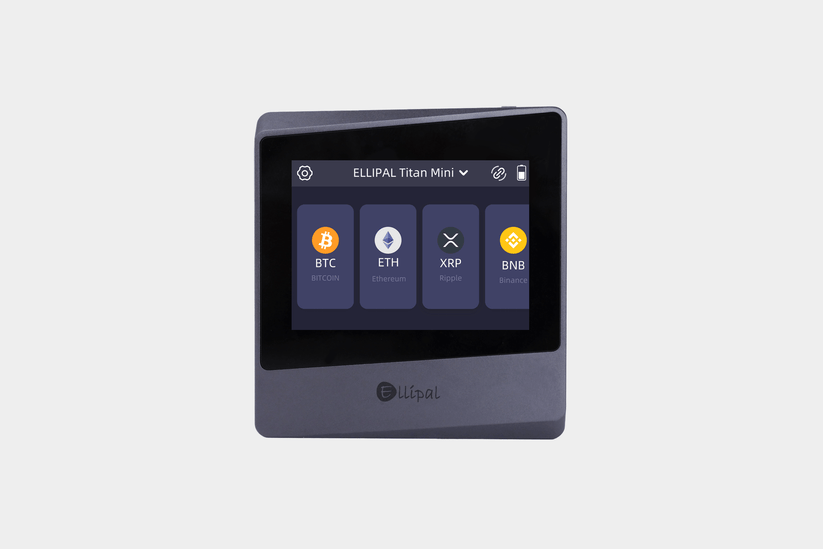Unlock the Secrets of Crypto Wallets: Discover What You Need to Know!
In the rapidly evolving world of cryptocurrencies, the concept of a crypto wallet has become paramount to both seasoned investors and newcomers alike. Just as you wouldn't keep your cash in a shoebox under your bed, a crypto wallet serves as a secure digital vault for your virtual currencies. With the growth of cryptocurrencies like Bitcoin, Ethereum, and countless altcoins, the need for secure storage solutions has never been more critical. In this article, we will explore the various types of crypto wallets, including their functionalities and security features, to help you understand how to keep your digital assets safe.

Understanding Crypto Wallets
A crypto wallet is essentially a software program or hardware device that allows you to store, send, and receive digital assets. Unlike traditional wallets that hold physical cash, crypto wallets don't actually store the currency itself but rather the public and private keys that are essential for managing your cryptocurrency. The public key acts like an email address, allowing others to send you digital assets, while the private key functions like a password, granting you access to your wallet and enabling you to sign transactions securely. To illustrate, a friend of mine once lost access to his crypto wallet because he neglected to back up his private key. His experience highlights the importance of maintaining security and backup practices.
Types of Crypto Wallets
Crypto wallets can be broadly categorized into two main types: hot wallets and cold wallets. Hot wallets are connected to the internet and are typically easier to access, making them suitable for users who frequently engage in transactions. On the other hand, cold wallets are offline storage solutions, providing enhanced security for those who prefer to keep their assets safe from potential online threats. Understanding the differences between these two categories is crucial in determining which type of wallet best suits your needs.
Hot Wallets
Hot wallets are characterized by their accessibility and convenience. They come in various forms, including web wallets, mobile apps, and desktop software. The primary advantage of hot wallets is that they allow for quick and easy transactions, which is ideal for active traders or those who regularly use cryptocurrencies for purchases. However, this convenience comes at a cost—hot wallets are more vulnerable to hacking and other cyber threats. For instance, a friend of mine used a hot wallet for day-to-day transactions but later regretted not transferring a portion of his assets to a cold wallet for security. His story serves as a reminder that while hot wallets are user-friendly, they require diligent security practices.
Cold Wallets
Cold wallets, in contrast, prioritize security over convenience. They include hardware wallets and paper wallets, which store your private keys offline. This makes them significantly less susceptible to online attacks, making them an excellent choice for long-term storage of cryptocurrencies. The primary advantage of cold wallets is their robust security, but they can be less convenient for frequent transactions. Many crypto investors choose to keep the bulk of their assets in cold storage while using hot wallets for smaller, everyday transactions. A friend of mine opted for a hardware wallet after losing a significant amount of crypto in a phishing attack, and he now feels much more secure knowing his investments are safely stored offline.
Choosing the Right Wallet for You
When selecting a crypto wallet, several factors should be considered to ensure it meets your needs. Security features are paramount; look for wallets that offer strong encryption and two-factor authentication. Additionally, usability is crucial; a wallet should be user-friendly, especially if you're new to cryptocurrencies. It's also important to consider the types of cryptocurrencies supported by the wallet, as some wallets may only cater to specific coins. Reflect on your personal preferences and how you intend to use your crypto investments. For instance, if you plan to engage in regular trading, a hot wallet may be more suitable. However, if you're looking to hold your assets for the long term, investing in a cold wallet might be the better choice. Assessing your individual needs can help you make an informed decision.
Safeguarding Your Digital Assets
In conclusion, understanding the different types of crypto wallets is essential for anyone looking to navigate the world of cryptocurrencies securely. From hot wallets that offer convenience for daily transactions to cold wallets that provide enhanced security for long-term storage, each option has its pros and cons. As you embark on your cryptocurrency journey, take the time to evaluate your own needs and preferences carefully. Remember that security is paramount in managing your digital assets, and doing thorough research before selecting a wallet can make all the difference in protecting your investments. The world of cryptocurrency is exciting, and with the right tools, you can navigate it confidently.


